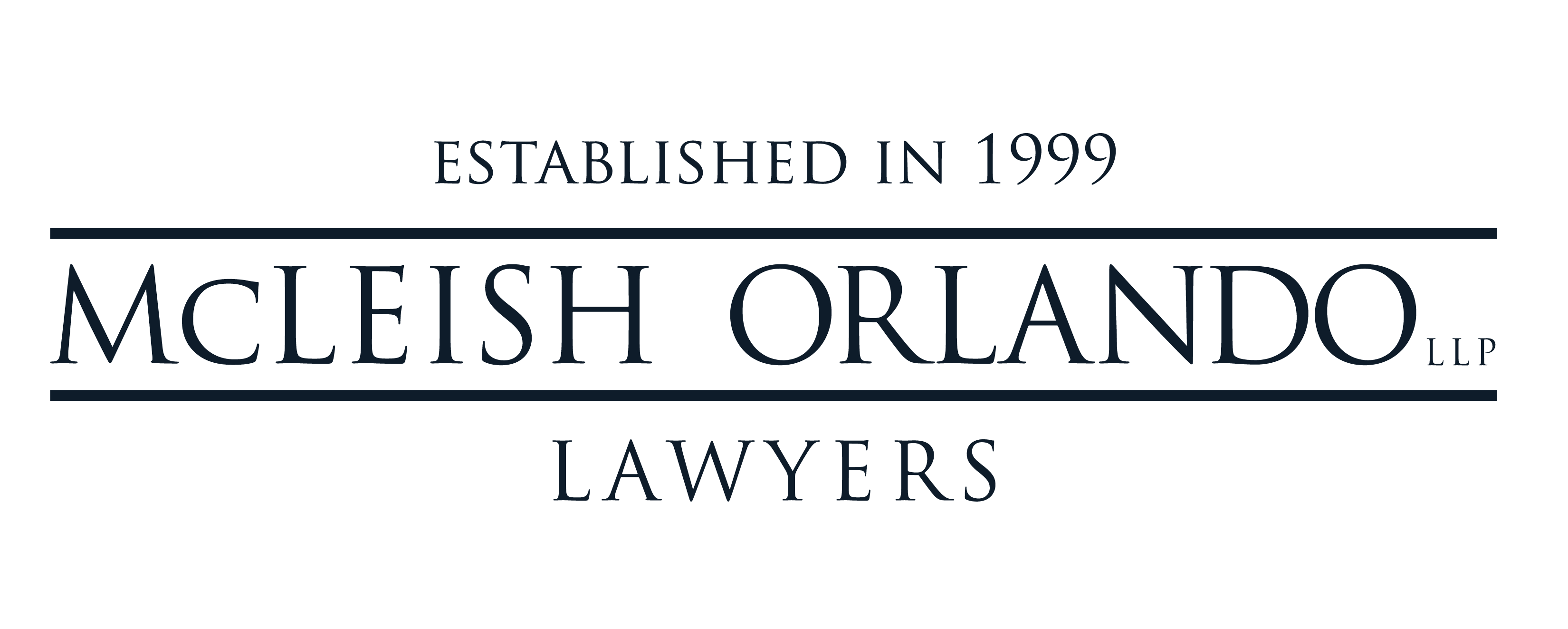By: Lindsay Charles, Partner and Cassandra De Marco, Articling Student
The Rules of Civil Procedure are the foundation of Ontario’s civil justice system. Rule 7.08 governs the need for approval of settlements involving parties under disability. Rule 49 deals with offers to settle, specifically how they are made, withdrawn, accepted, and the potential costs consequences for parties who reject reasonable offers.
In an effort to strengthen these rules, Ontario Regulation 50/25, effective June 16, 2025, refine both of these rules to enhance procedural fairness and accountability. This blog provides an overview of what changes are being made to Rule 7.08 and Rule 49.
Changes to Rule 7.08: Approval of Settlement
Rule 7.08 provides the requirements for settlements involving parties who are under disability. A party under disability includes minors (individuals under the age of 18), those deemed mentally incapable as defined by the Substitute Decisions Act, and persons who are deemed to be absent as defined by the Absentees Act. Parties under disability are unable to fully represent their legal interests, and so Rule 7.08 provides safeguards to ensure that parties under disability are treated fairly and are not exploited. One of these safeguards is the requirement that any proposed settlement must be approved by a judge before it can become binding.
While a litigation guardian is appointed to act on the behalf of parties under disability, court approval ensures that the guardian’s actions, particularly when it comes to agreeing to settlements, are in the best interest of the person they represent.
Major Changes Under Ontario Regulation 50/25
Ontario Regulation 50/25 introduces a series of targeted amendments aimed at improving Rule 7.08. These changes are predominantly focused on Rule 7.08(4) which focuses on the material required for approval. These amendments will require parties to carefully redact sensitive or privileged content from materials submitted to the court when seeking approval of settlements involving parties under disability.
Prior to the amendments under Ontario Regulation 50/25, Rule 7/08(4) read:
Material Required for Approval
(4) On a motion or application for the approval of a judge under this rule, there shall be served and filed with the notice of motion or notice of application,
(a) an affidavit of the litigation guardian setting out the material facts and the reasons supporting the proposed settlement and the position of the litigation guardian in respect of the settlement;
(b) an affidavit of the lawyer acting for the litigation guardian setting out the lawyer’s position in respect of the proposed settlement;
(c) where the person under disability is a minor who is over the age of sixteen years, the minor’s consent in writing, unless the judge orders otherwise; and
(d) a copy of the proposed minutes of settlement. R.R.O. 1990, Reg. 194, r. 7.08 (4); O. Reg. 69/95, s. 18; O. Reg. 575/07, s. 10.
However, as of June 16, 2025, Rule 7.08(4) will now read:
(4) Subject to any redactions or omissions required under subrule (4.2), a party or person seeking the approval of a settlement by a judge under this rule shall file, together with the notice of motion or notice of application, as the case may be, a motion or application record, which shall contain,
(0.a) a table of contents describing each document, including each exhibit, by its nature and date and, in the case of an exhibit, by exhibit number or letter;
The following subrules will also be added:
(4.2) If any information contained in the notice of motion or notice of application or in the motion or application record, including the grounds of the motion or application, is subject to solicitor-client privilege or could, if it were disclosed to another person, prejudice the person under disability, the lawyer acting for the litigation guardian shall ensure that the information is redacted or omitted from the document before filing it. O. Reg. 50/25, s. 1 (5).
(4.3) The lawyer shall provide to the presiding judge at the hearing the complete and unredacted versions of the notice of motion or notice of application and motion or application record, which shall not form part of the court file. O. Reg. 50/25, s. 1 (5).
(4.4) Unless a judge orders otherwise,
(a) the application or motion for approval of a settlement under this rule shall be heard in writing without the attendance of the parties; and
(b) a factum need not be served or filed. O. Reg. 50/25, s. 1 (5).
These amendments require parties to redact any parts of their affidavits and accompanying documentation that reveal solicitor-client communications, personal health details, or other confidential information that is not essential to determining the outcome of the motion. The following are examples of what should be redacted:
- References to legal strategy.
- Medical records.
- Sensitive personal information
These changes are very similar to the requirements under Rule 15.04 of the Rules of Civil Procedure. Rule 15.04 provides the requirements when a lawyer is moving to be removed as a lawyer of record. One of these requirements is that privileged or sensitive information is redacted, or the document is sealed.
These changes do not change the requirement to have the following information included in the materials required for approval:
- The terms of the settlement.
- An explanation as to why the settlement is of the best interest of the party under disability.
- Any non-monetary components such as structured payments, care obligations, and trust arrangements (i.e. being paid into the Court).
- The moving party’s opinion on the fairness of the settlement, supported by facts.
Other Changes to Rule 7.08
While the major changes impacted Rule 7.08(4), there have been other changes to Rule 7.08. This includes the following:
- Rule 7.08(2.1) of the Regulation is amended by striking out “or judgment”.
- The addition of subrule (3.1): “Despite any other rule, a motion or application for the approval of a settlement by a judge under this rule may be made by the litigation guardian for a person under disability without notice to any other party, and the materials filed in support of the motion or application need not be served on any other party unless a judge orders otherwise.”
- Rule 7.08(5)(a) of the Regulation is amended by striking out “material” and substituting “complete and unredacted versions of the material”
These changes to Rule 7.08 allow for consistency among the Rules of Civil Procedure, as it now holds the same requirements to Rule 15.04. These changes emphasize the role of the Courts in these situations, as it forces more protection for vulnerable parties, including their right for privacy.
Changes to Rule 49: Settlements
Rule 49 of the Rules of Civil Procedure deals with settlements and offers to settle. The main goal of Rule 49 is to encourage parties to accept reasonable settlement offers with the intention of reducing the burden on the court system. Starting June 16, 2025, there are four major changes:
(1) The introduction of Rule 49.01.1
(2) The binding nature of settlements when there is a party under disability, amending 49.08
(3) The creation of Rule 49.14 and the introduction of 49E
(4) Other language changes to Rules 49.01 to 49.10
The Introduction of Rule 49.01.1
The upcoming amendments include the addition of Rule 49.01.1 which reads:
49.01.1 This Rule applies to actions, applications and, with necessary modifications, motions, counterclaims, crossclaims and third or subsequent party claims. O. Reg. 50/25, s. 4.
This rule defines the type of proceedings to which Rule 49 applies. With this addition comes the removal of Rule 49.02(2) as Rule 49.01.1 clarifies when Rule 49 can apply. This amendment clarifies what procedural context Rule 49 applies to and removes the ambiguities that previously existed.
Amendment to Rule 49.08: Changes to the Binding Nature of Settlements Involving Parties Under Disability
Up until Ontario Regulation 50/25, Rule 49.08 read:
49.08 A party under disability may make, withdraw and accept an offer to settle, but if approval of the settlement is required under rule 7.08, no acceptance of an offer made by the party and no acceptance by the party of an offer made by another party is binding on the party until that approval has been given. O. Reg. 281/16, s. 6.
Rule 49.08 has been amended to explicitly state that a settlement involving a party under disability is not binding on that party unless approved by a judge under Rule 7.08, except where Rule 7.08 otherwise provides. Because of this amendment, as of June 16, 2025, Rule 49.08 will now read:
49.08 A party under disability may make, withdraw and accept an offer to settle, but the acceptance of an offer made by a party under disability, or the acceptance by a party under disability of an offer made by another party, is not binding on the party under disability without the approval of a judge under rule 7.08, except as otherwise provided by that rule. O. Reg. 50/25, s. 7.
This amendment aligns Rule 49 with Rule 7.08. While court approval has always been required for cases involving a vulnerable person, this amendment emphasizes that a Rule 49 offer or acceptance cannot remove the requirement of court approval.
The Creation of Rule 49.14 and the Introduction of Form 49E
One of the biggest changes to the Rules of Civil Procedure in Ontario Regulation 50/25 is the addition of Rule 49.14(1)–(10). Rule 49.14 introduces specific procedural requirements for disclosing partial settlement agreements. A partial settlement is a settlement between some but not all parties in an action.
Rule 49.14(4) provides the specifics of disclosure:
(4) Subject to subrule (8), a plaintiff who is a party to a partial settlement agreement shall disclose the terms of the agreement, other than the monetary value of the settlement, if any, to every other plaintiff and defendant who is not a party to the agreement,
(a) immediately after the agreement is reached, if the hearing of the proceeding has commenced; or
(b) if the hearing of the proceeding has not commenced, no later than the earlier of,
(i) seven days after the agreement is reached, and
(ii) the taking of any further step in the proceeding by any party to the agreement. O. Reg. 50/25, s. 9.
This new rule also provides consequences for failing to disclose partial settlement agreements. Rule 49.14(7) outlines the consequences the court may impose. This includes:
- Ordering costs;
- Permitting further examinations;
- Ordering additional disclosure or production of documents;
- Striking out all or part of a party’s evidence;
- Adjourning a hearing or other step that permits or requires the attendance of the parties; and,
- Staying the proceeding.
Rule 49.14(8) provides the disclosure requirements of a partial settlement when the settlement is subject to court approval under Rule 7.08.
Rule 49.14(9) and (10) provides rules for disclosing the monetary amount of the partial settlement when dealing with a party not under disability (49.14(9)) and when dealing with a party under disability (Rule 49.14(10)). When dealing with a party under disability, a party’s litigation guardian shall seek direction from the court respecting any legal requirement to disclose the monetary value of a settlement for any purpose.
With the creation of Rule 49.14, Ontario Regulation 50/25 also introduces Form 49E. This Form includes the Terms of the Partial Settlement Agreement.
Other Changes to Rule 49
While there have been some substantial changes concerning Rule 49, there have been other more technical amendments that are included to reflect the major amendments described above. This includes the following:
- The title of Rule 49 will be changed from “Offer to Settle” to “Settlement”.
- Rule 49.01 of the Regulation is amended by striking out the portion before the first definition and substituting, “In this Rule,”.
- Rule 49.02 has been revoked.
- Rule 49.03 of the Regulation is amended by striking out “hearing” and substituting “hearing of the proceeding”.
- Rule 49.10 of the Regulation is amended by striking out “hearing” wherever it appears and substituting in each case “hearing of the proceeding”.
Whether you’re seeking court approval for a settlement involving a party under disability or navigating the strategic landscape of offers to settle, having an experienced legal team by your side is essential. If someone you know has been injured in an accident, contact our office for a free consultation.





